A Strange Horizon Worth Viewing
 I’ve sometimes bought a book without knowing anything about it because it had a cool cover. Similarly, I’ve been drawn to read a story because of a cool title.
I’ve sometimes bought a book without knowing anything about it because it had a cool cover. Similarly, I’ve been drawn to read a story because of a cool title.
Case in point is “Young Love on the Run from the Federal Alien Administration New Mexico Division (1984)” by Grant Stone over at the May 9 edition of the weekly Strange Horizons webzine. The protagonist has fallen in love with an alien newly escaped from a government holding facility in Rosewell (where else?) during the aforesaid Orwellian year. The pair are on the run from grey-suited, mirrorshaded agents who want the alien back because the captured extraterrestrials are essential to some sort of Cold War research project; at the very least, the government doesn’t want the Soviets to get ahold of them. To try to get back home, the alien is trying to jerry rig a communications device from television and cassette recorder parts, the nod to ET phoning home no doubt intentional. As you might expect, the scenario is that just because you’re paranoid doesn’t mean people aren’t out to get you, even if they are trying to protect you. What you might not expect is that a kind heart sometimes comes from the sources you might think the most alien.
Sometimes you can’t judge a book by its cover, or a story by its title. In this case, you can. A “strange horizon” worth viewing.
 I first read Joanna Russ as an assignment for a graduate seminar in science fiction. The story was “
I first read Joanna Russ as an assignment for a graduate seminar in science fiction. The story was “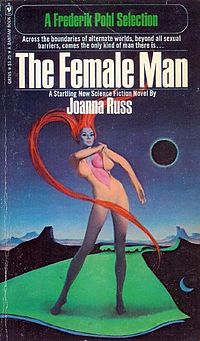
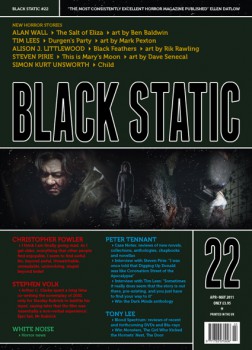
 The 19th online issue — and 26th issue overall – of one of the genre’s leading publications, Subterranean Magazine, is now available (at least in part).
The 19th online issue — and 26th issue overall – of one of the genre’s leading publications, Subterranean Magazine, is now available (at least in part).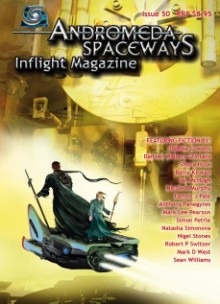 In addition to having the coolest title for a genre fiction magazine,
In addition to having the coolest title for a genre fiction magazine, 
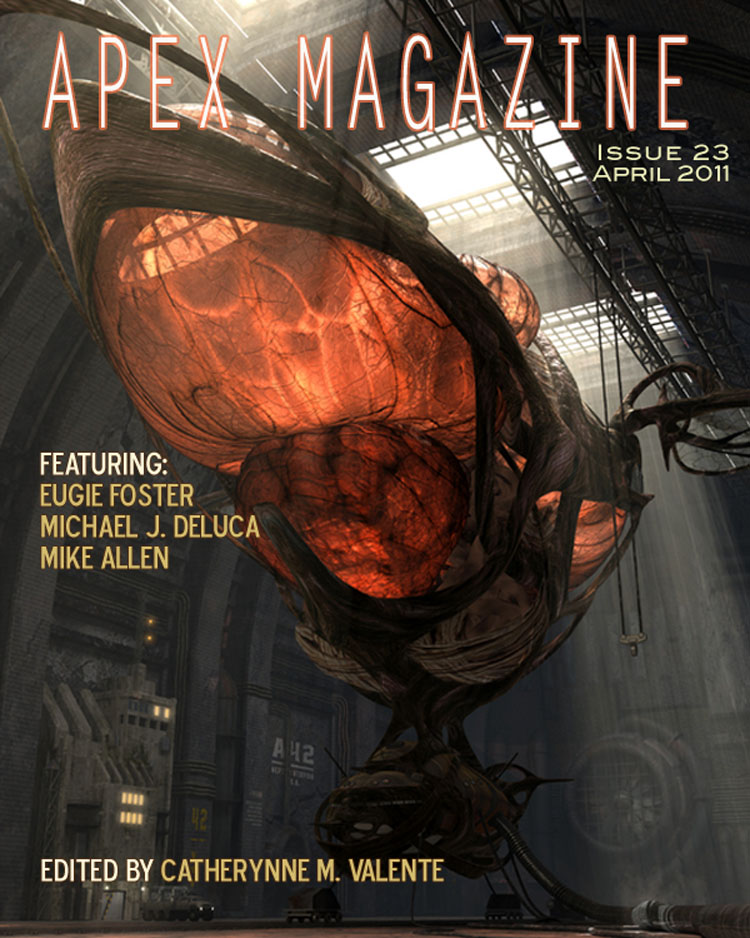 The April edition of
The April edition of 
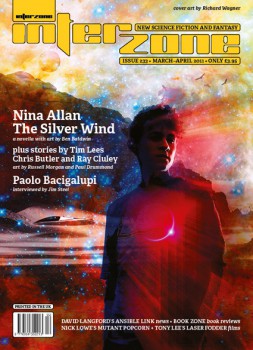
 You can read my
You can read my  Astronomer James Elliot gets a featured obit because he discovered the rings of Uranus (okay, wipe that smirk off your face). What’s also noteworthy is that he apparently did so in a kind of jury-rigged fashion. According to the Times obituary:
Astronomer James Elliot gets a featured obit because he discovered the rings of Uranus (okay, wipe that smirk off your face). What’s also noteworthy is that he apparently did so in a kind of jury-rigged fashion. According to the Times obituary: Also in the news is the tsunami and the largest earthquake in a century or more that hit Japan. Whatever our global technological progress (even while world politics continues to destabilize), we tend to forget just how fragile we are as a species even without our efforts to do ourselves in. During the Cold War, the end of the world was nuclear. Then it was terrorism and religious fanatacism. But, maybe it will end up just being good old Mother Nature. Time to go reread J.G. Ballard.
Also in the news is the tsunami and the largest earthquake in a century or more that hit Japan. Whatever our global technological progress (even while world politics continues to destabilize), we tend to forget just how fragile we are as a species even without our efforts to do ourselves in. During the Cold War, the end of the world was nuclear. Then it was terrorism and religious fanatacism. But, maybe it will end up just being good old Mother Nature. Time to go reread J.G. Ballard.